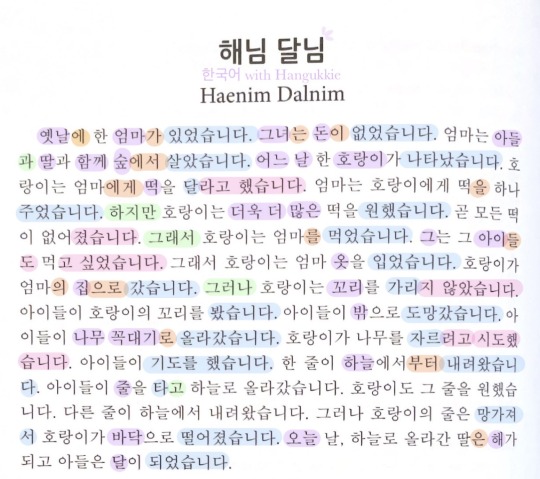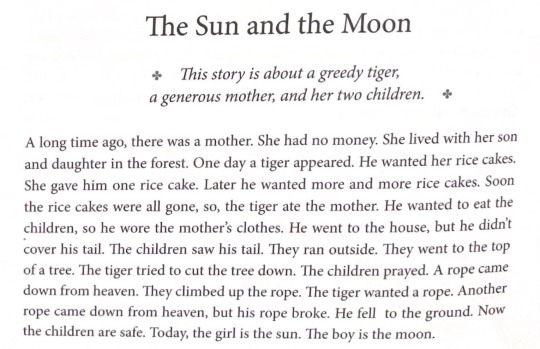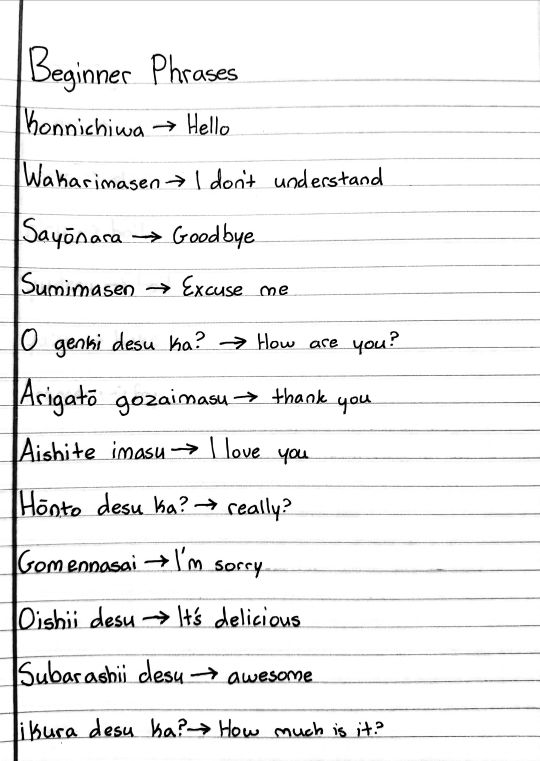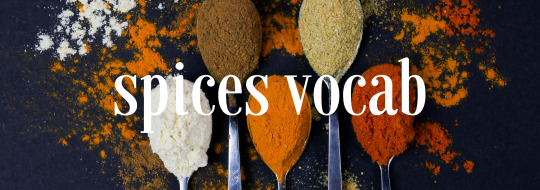#vocab lists
Text
Arriba 6.2 Verbs
calentar = to heat
cocinar = to cook
cortar = to cut
echar = to add, to throw in
freίr = to fry
guardar = to save, to keep
hornear = to bake, to roast
mezclar = to mix
medir = to measure
pelar = to peel
picar = to chop
tostar = to toast
.
Patreon
#studyblr#notes#language#spanish#spanish studyblr#spanish notes#spanish language#langblr#spanish langblr#language learning#learning spanish#foreign languages#romance languages#european languages#spanish verbs#verbs in spanish#vocab lists#spanish vocab#spanish vocabulary#vocab#vocabulary
18 notes
·
View notes
Text
Food vocab - czech, spanish, english
(langblr reactivation challenge day 4)
czech - spanish - english
brambory - patatas - potatoes
brokolice - brócoli - broccoli
celer - apio - celery
cibule - cebolla - onion
česnek - ajo - garlic
čočka - lentejas - lentils
fazole - frijoles - beans
houba - seta - mushroom
hrášek - guisantes - peas
chřest - espárragos - asparagus
kapusta - repollo - cabbage
kukuřice - maíz - corn
květák - coliflor - cauliflower
lilek, baklažán - berenjena - eggplant
mrkev - zanahoria - carrot
okurka - pepino - cucumber
paprika - pimiento - bell pepper
petržel - perejil - parsley
pórek - puerro - leek
špenát - espinaca - spinach
ananas - piña - pineapple
banán - plátano - banana
švestka - ciruela - plum
meruňka - albaricoque - apricot
broskev - melocotón - peach
citron - limón - lemon
hrozny - uvas - grapes
jahoda - fresa - strawberry
borůvka - arándano - blueberry
malina - frambuesa - raspberry
ostružina - mora - blackberry
rybíz - grosella - currant
vodní meloun - sandía - watermelon
meloun - melón - melon
pomeranč - naranja - orange
mandarinka - mandarina - mandarin
třešeň - cereza - cherry
mléko - leche - milk
sýr - queso - cheese
smetana - nata - cream
šlehačka - nata montada - whipped cream
jogurt - yogur - yogurt
máslo - mantequilla - butter
mouka - harina - flour
med - miel - honey
rýže - arroz - rice
těstoviny - pasta - pasta
olej - aceite - oil
ocet - vinagre - vinegar
hořčice - mostaza - mustard
#vocab list#vocab lists#spanish vocabulary#spanish#czech vocab#czech vocabulary#czech#spanish vocab#spanish langblr#czech langblr#food vocabulary#food vocab#langblr#learn czech#learn spanish#learning czech#learning spanish
285 notes
·
View notes
Text

et møbel/møbler - furniture
en seng - bed
en sofa - sofa
et sofabord - coffee table
et sidebord - corner table
et nattbord - bedside table
en tvbenk/et tvbord - tv table
et vitrineskap - hutch/display cabinet
et skrivebord - a desk
en/ei bokhylle - book shelf
en/ei skohylle - a shoe shelf
et skap - a closet
en kommode - a dresser
en garderobe - wardrobe
en stol - chair
en lenestol - an armchair
en sjeselong - a chaise lounge
en sovesofa - pull-out couch
en dagseng - a daybed
17 notes
·
View notes
Text
Random Vocab List of My Target Languages
Note: I am still learning so if anyone has any corrections please say
English Korean French German Lithuanian
Snow 눈 la neige der Schnee Sniegas
Rain 비 la pluie der Regen Lietus
Clouds 구름 le nuage die Wolken Debesys
Sun 해 le soleil die Sonne Saulė
Moon 달 la lune der Mond Mėnulis
Angels 천사 l’ange die Engel Angelai
Memory 기억 la mémoire die Erinnerung Atsiminimas
Kiss 키스 le baiser der Kuss Bučinys (m)
Singing 노래 부르기 le chant der Gesang Dainavimas (m)
Day 하루 le jour der Tag Dienà
#vocabulary#french#korean#german#Lithuanian#langblr#vocab lists#French langblr#Korean langblr#German langblr#Lithuanian langblr
35 notes
·
View notes
Text
Sauces in Chinese

To follow up on my last post about spices, here are some of the most common sauces used in Chinese cooking! This is an even broader category than spices, so forgive me if I've left out your favorite, but these basics should do the trick to help you understand recipe videos and even fill out your own Chinese pantry.
醬油 (jiàngyóu): soy sauce
生抽 (shēngchōu): light soy sauce
- This is the basic soy sauce that is used to season dishes all across China.
老抽 (lǎochōu): dark soy sauce
- This darker, more deeply-flavored soy sauce is used in small quantities to add color to dishes.
醋 (cù): vinegar
白醋 (báicù): white vinegar
- The same distilled vinegar you'll see in American supermarkets.
米醋 (mǐcù): rice vinegar
- This can refer to the basic clear rice vinegar that you'll also see in Japanese cuisine, and also be used as a catch-all term for the other rice-based vinegars listed below.
香醋 (xiāngcù): black vinegar
- A dark-colored vinegar made from fermented sticky rice. 鎮江香醋 is a famous variety.
老醋 (lǎocù)/陳醋 (chéncù): mature vinegar
- These words can refer to various types of aged vinegars.
料酒 (liàojiǔ): cooking wine
米酒 (mǐjiǔ): rice wine
- All of the wines in this list can be drank as well as cooked with, but be warned that if you're in the U.S. most of what you'll find will not be high enough quality to drink (or to use in recipes where wine is the main focus).
黃酒 (huángjiǔ): yellow rice/millet wine
- Similarly to other types of wine, there are many varieties of yellow wine and different ways to describe the taste.
紹興酒 (shàoxīngjiǔ): Shaoxing wine
- The most common wine called for in Chinese recipes (in the US), this is a type of 黃酒.
白酒 (báijiǔ): baijiu
- China's most famous hard liquor can also be used for curing and preserving foods.
玫瑰露酒 (méiguilùjiǔ): rose wine
- Another hard liquor that is flavored with rose and used in Cantonese cooking.
油 (yóu): oil
香油 (xiāngyóu): sesame oil
- The most popular seasoning oil in Chinese cooking.
菜子油 (càizǐyóu): rapeseed oil
- A cooking oil used in Sichuan cuisine with a pungent, mustardy flavor. It's very hard to import into the U.S. but god am I waiting for my Asian grocery store to get some.
花椒油 (huājiàoyóu): Sichuan peppercorn oil
- An neutral oil infused with Sichuan peppercorn used to finish certain Sichuan dishes.
辣椒油 (làjiāoyóu): chili oil
- A delicious and spicy condiment made by pouring hot oil, potentially seasoned with spices and aromatics, over chili flakes.
紅油 (hóngyóu): red oil, chili oil
- Often, but not always, connotates the oil itself without the "sediment" (chili flakes that gather at the bottom).
油潑辣子 (yóupōlàzi): chili oil
- Another term for chili oil, this one faring from Shaanxi.
油辣椒 (yóulàjiāo): chili crisp
- This is a Guizhou style chili oil made iconic by 老乾媽. It can be a more straightforward chili oil or have add-ins like peanuts, fried tofu or fermented vegetables (get the 三丁 flavor!).
蠔油 (háoyóu): oyster sauce
- Pretty common in the U.S. because of the long history of Cantonese immigration here.
魚露 (yúlù): fish sauce
- Fish sauce is more famous for its use in Southeast Asian cooking, but is also popular in Fujian cuisine.
蝦醬 (xiājiàng): salted shrimp paste
- This is a Cantonese ingredient made of ground-up fermented shrimp.
甜麵醬 (tiánmiànjiàng): sweet bean/wheat sauce
- This sauce is often translated as "sweat bean sauce", but it's really made from fermented wheat flour! It's used in many recipes for Beijing's famous zhajiang noodles, though its inclusion is controversial.
豆瓣醬 (dòubànjiàng): fermented soybean paste
- This sweetish paste is similar to 甜麵醬, but is actually made out of beans!
辣豆瓣醬 (làdòubànjiàng): spicy fermented bean paste
- This iconic Sichuan condiment is confusingly often referred to as 豆瓣醬. Unlike that smooth paste, 辣豆瓣醬 is a spicy, chunky paste made of chilis and beans.
海鮮醬 (hǎixiānjiàng): hoisin sauce
- Despite literally translating to "seafood sauce", this sauce has no seafood in it, nor is it served with seafood. It's based on fermented bean sauce with other seasonings and is a popular dipping sauce in Cantonese and American Chinese cuisine.
柱侯醬 (zhùhóujiàng): chee hou sauce
- Another Cantonese fermented bean-based sauce, this one has different seasonings from hoisin and is used in braises and stews.
XO醬 (XO jiàng): XO sauce
- XO sauce is a luxurious sauce invented in Hong Kong in the '80s containing aromatics, dried seafood, ham and other pricy ingredients.
沙茶醬 (shāchájiàng): shacha sauce/Chinese satay sauce
- This sauce is distantly related to but very different from Southeast Asian satay sauce. It's made with dried seafood, aromatics and chilies and popular in Fujian, Teochow and Taiwanese cuisine (and makes an excellent hot pot dipping sauce!).
芝麻醬 (zhīmajiàng): sesame paste
- This thick paste is similar to tahini but made with roasted sesame seeds, and is the base for sesame noodle sauce.
豆豉醬 (dòuchǐjiàng): black bean sauce
- This sauce is made of fermented black soybeans and garlic and is popular with clams and beef.
蘇梅醬 (sūméijiàng): plum sauce
- This sauce is made with salted plums and is similar to duck sauce. It can be used for dipping sauces and glazed meats.
叉燒醬 (chāshāojiàng): char siu sauce
-This is the sauce used to flavor Cantonese char siu barbecue pork.
#chinese#mandarin chinese#langblr#studyblr#food#vocab lists#zbtg posts#this one was fun as well! definitely skews cantonese lol#but it seems like that's the stuff that's most familiar/available outside of china#and also they have a LOT of sauces down there lol#when i make a list for fermented foods i think it will touch more on some regions that got relatively neglected#and that's where furu and douchi and duojiao will be
42 notes
·
View notes
Text
ancient greek words for colors:
On the whole, the Greeks were not really concerned with giving names to specific colors. Their color terms were vague, often had more to do with shade than color difference, and drew in a sort of dynamic physicality that is honestly incredibly interesting.
μέλας and λευκός, which were commonly used to refer to black and white respectively, were still more involved with shade than the particular colors that we perceive as black and white. μέλας also meant dark, murky, and swarthy. λευκός was light, bright and clear, referred to any white color from a pure white to a light grey, and could also refer to someone with lighter skin.
χλωρός meant pale green or greenish yellow, but also commonly meant pale or pallid when referring to people and fresh or blooming when referring to plants and liquids (including blood and tears).
πορφύρεος is where we get the color term purple. And when it was referring to clothes or things, it did mean purple. But when it was describing people, especially their complexions, it meant bright red or flushed. This definition originates from the basic meaning of the word: heaving, surging, gushing, coming from the verb πορφύρω.
ξανθός and ἐρυθρός are perhaps the only straightforward terms, meaning yellow or golden and red respectively. ξανθός was typically used to describe blonde (ish) people; Achilles is described as having ξανθή κόμη (golden hair).
γλαυκός was commonly used to refer to the color grey, or simply to describe something as gleaming. When it refers to eyes, it usually describes the color; the most famous example being Athena and her epithet of γλαυκῶπις or grey-eyed (or gleaming eyed).
And now let's talk about κυάνεος. We get the color term cyan from it, and the word is popularly considered to refer to a dark blue. But that isn't exactly accurate. If we look at what this word typically described: hair, people, etc., it is clear that the concept of blue that we have nowadays wasn’t really coming into play. In fact, the more general translation is dark or black, conveying a shade rather than a color, like μέλας. If I were to attribute a color term to this word at all, I would probably say blue-black, or a cool black, to convey the depth of that shade, which is probably what the Greeks were describing.
#ancient greek#vocab#vocabulary#language learning#greek language#greek vocab#classical literature#classics#colors#words for colors#how to describe colors#dys blurbs#i had to make my own list because every other one i've seen has colors that aren't referred to by texts with as much frequency#achilles#athena#the iliad#the odyssey
526 notes
·
View notes
Text
50+ fundamental crime, suspense, & mystery Cdrama vocab words

I'm currently watching 《模仿犯》, so I was inspired to put together this list of essential vocab for 犯罪剧/悬疑剧/推理剧. I tend to gravitate towards dramas that fall into these genres.
I've sorted the words into categories. These were determined by vibes only. Definitions are adapted from MDBG, my loyal companion for nearly 10 years.
The Case
案子 ànzi - case / law case / legal case / judicial case
案件 ànjiàn - case / instance
办案 bàn'àn - to handle a case
破案 pò'àn - to solve a case
报案 bào'àn - to report a case to the authorities
命案 mìng'àn - homicide case / murder case
作案 zuò'àn - to commit a crime
现场 xiànchǎng - the scene (of a crime, accident etc) / (on) the spot / (at) the site
证据 zhèngjù - evidence / proof / testimony
真相 zhēnxiàng - the truth about sth / the actual facts
The Investigation
厘清 líqīng - to clarify (the facts) / clarification
线索 xiànsuǒ - trail / clues / thread (of a story)
细节 xìjié - details / particulars
痕迹 hénjì - vestige / mark / trace
追踪 zhuīzōng - to follow a trail / to trace / to pursue
追问 zhuīwèn - to question closely / to investigate in detail / to examine minutely / to get to the heart of the matter
排除 páichú - to eliminate / to remove / to exclude / to rule out
嫌疑 xiányí - suspicion / to have suspicions
怀疑 huáiyí - to doubt (sth) / to be skeptical of / to have one's doubts / to harbor suspicions / to suspect that
跟踪 gēnzōng - to follow sb's tracks / to tail / to shadow / tracking
不对劲 búduìjìn - fishy / wrong / not right
隐瞒 yǐnmán - to conceal / to hide (a taboo subject) / to cover up the truth
The Victim
被害者 bèihàizhě - victim (of a wounding or murder)
受害者 shòuhàizhě - casualty / victim / those injured and wounded
幸存者 xìngcúnzhě - survivor
失踪 shīzōng - to be missing / to disappear / unaccounted for
消失 xiāoshī - to disappear / to fade away
绑架 bǎngjià - to kidnap / to abduct / to hijack / a kidnapping abduction / staking
遗体 yítǐ - remains (of a dead person)
尸体 shītǐ - dead body / corpse / carcass
拯救 zhěngjiù - to save / to rescue
寻人启事 xúnrénqǐshì - missing persons notice
The Perpetrator
嫌疑犯 xiányífàn - a suspect
嫌疑人 xiányírén - a suspect
歹徒 dǎitú - evildoer / malefactor / gangster / hoodlum
凶手 xiōngshǒu - murderer / assassin
一伙儿的 yìhuǒrde - in on it together
开枪 kāiqiāng - to open fire / to shoot a gun
鬼鬼祟祟 guǐguǐsuìsuì - sneaky / secretive / furtive
可疑 kěyí - suspicious / dubious
认罪 rènzuì - to admit guilt / to plead guilty
自首 zìshǒu - to give oneself up / to surrender (to the authorities)
下落 xiàluò - whereabouts / to drop / to fall
动机 dòngjī - motive / motivation
犯罪 fànzuì - to commit a crime / crime / offense
The Police
报警 bàojǐng - to sound an alarm / to report sth to the police
警察 jǐngchá - police / police officer
警方 jǐngfāng - police
警官 jǐngguān - constable / police officer
刑警 xíngjǐng - criminal police (abbr. for 刑事警察)
被捕 bèibǔ - to be arrested / under arrest
包围 bāowéi - to surround / to encircle / to hem in
监控 jiānkòng - to monitor
检查 jiǎnchá - inspection / to examine / to inspect
调查 diàochá - investigation / inquiry / to investigate
排查 páichá - to inspect / to investigate one by one
质问 zhìwèn - to question / to ask questions / to inquire / to bring to account / to interrogate
前科 qiánkē - criminal record / previous convictions
Bonus: Here's a list of dramas I have seen/am watching in these categories:
《想见你》 Someday or One Day
《开端》 Reset
《消失的孩子》 The Disappearing Child
《她和她的她》 Shards of Her
《镇魂》 Guardian
《模仿犯》 Copycat Killer
《不良执念清除师》 Oh No! Here Comes Trouble
Now go forth and enjoy some more dramas! I'm a slow watcher, so I add new shows to my watch list faster than I can finish them.
#vocab list#cdrama#cdramas#chinese drama#taiwanese drama#chinese#mandarin#mandarin chinese#chinese language#studyblr#langblr#language study#language learning#chinese studyblr#chinese langblr#mandarin studyblr#mandarin langblr#study chinese#study mandarin#learn chinese#learn mandarin#studying chinese#learning chinese#studying mandarin#learning mandarin#languages#language blog#languageblr#chinese vocab#mandarin vocab
629 notes
·
View notes
Text
10 Wonderful (and Unorganised) DIY Irish Words/Phrases!!!
Irish - Literal Meaning - English
Feoilséantóir - Meat Denier - Vegetarian
Conriocht - Dog Form - Werewolf
Smugairle Róin - Seal Spit - Jellyfish
Muireann i mBríste - Muireann (girl's name) in Trousers - Tomboy
Snag Breac - Speckled Hiccuper - Magpie
Tírghrá - Country Love - Patriotism
Uisce Faoi Thalamh - Water Under Ground - Conspiracy
Snáthaid an Diabhail - The Devil's Needle - Daddy-Long-Legs
Bréigéide - False Clothing - Fancy Dress
Eiteán - Little Wing - Shuttlecock
#gaeilge#irish#linguistics#language stuff#etymology#ireland#vegetarian#vegetarianism#werewolf#werewolves#jellyfish#magpie#daddy long legs#tomboy#vocab list#vocabulary
248 notes
·
View notes
Text




DAL@VGK Pregame: Jason Robertson (10.17.23)
I'm really just interested to see his tinted visor out there today. (Ooh.) I think that'd be very stylish. (Like Darth Vader-ish, almost.) Yeah, very—not mischievous, but... (Sinister?) Sinister. Yeah!
#sorry for unnecessary gifs as per#jason robertson#dallas stars#stars#*#guy read one psat vocab list and thinks he's razor now
242 notes
·
View notes
Text
한국 전래동화에 나오는 어회와 문법 ! - Vocabulary and grammar in traditional Korean fairytales !

English Translation:

———————————————————
Vocabulary:
옛날 - Olden days
옛날에 - Once upon a time
어머니/엄마 - Mum
그녀 - She/Her
돈 - Money
아들 - Son
딸 - Daughter
함께 - Together
숲 - Forest
어느 - Which
날 - Day
호랑이 - Tiger
떡 - Rice cake
더욱 더 - More and more
많이/많은 - Many/A lot
그 - He/Him
아이 - Kid/Child
아이들 - Kids/Children
옷 - Clothes
집 - House
꼬리 - Tail
밖 - Outside
나무 - Tree
꼭대기 - The top
하늘 - Sky
줄 - Rope
바닥 - Floor
오늘 - Today
해 - Sun
달 - Moon
Grammar - Verbs:
있다 - To exist
없다 - To not exist
살다 - To live
나타나다 - To appear
달다 - To ask/To request (In this context)
주다 - To give
원하다 - To want/To wish/To desire
먹다 - To eat
가다 - To go
가리다 - To cover
보다 - To see
도망가다 - To run away
올라가다 - To go up
자르다 - To cut
기도를 하다 - To pray
내리다 - To get off
떨어지다 - To fall
된다 - To become
Grammar - Sentence Forms:
라고 하다 - For indirect quotations
지다 - To become
도 - Too/Also/As well as
고 싶다 - To want
지 않다 - Is not
려고 - To intend to
시도하다 - To attempt to
Grammar - Connectives:
과 - And/With (With 받침)
하지만 - But
그래서 - So
그러나 - But/However
하고 (고) - And/With
Grammar - Markers/Particles:
에 - To/At (Location and time marker)
가 - Subject particle
는 - Topic particle
이 - Subject particle (With 받침)
에서 - At/In/On/From (Location marker)
에게 - To/For
을 - Object particle (With 받침)
를 - Object particle
들 - Plural marker
의 - Possessive marker
으로 - By/As/For/To/Towards/With (Directional marker)
로 - By/As/For/To/With (Directional marker - with 받침)
부터 - From/Since (Location and time marker)
은 - Topic particle (With 받침)
#korean language#korean langblr#korean#langblr#korean study blog#korean studyblr#study blog#studyblr#korea#korean vocab#korean vocabulary#korean vocab list#Korean stories#Korean fairytales#Korean folktales#korean folklore#한국#한국어#한국어 공부#한국어 읽기#한국어 어휘#한국어 단어#한국어 문법#공부#읽기#어휘#단어#문법#한국 전래동화#전래동화
364 notes
·
View notes
Text
Beginner Phrases (Japanese)

#langblr#studyblr#notes#my notes#language#language notes#japanese#japanese notes#japanese language#japanese language notes#vocab#vocab lists#japanese vocab
31 notes
·
View notes
Text
Langblr reactivation #4
"Day 3: Create a list or a mindmap of vocabulary topics. Start with a broad topic and narrow down to more specific topics [...]. Keep a hold of this because you'll use it later to create vocab to study. [...]"
So here's my mindmap! A bit messy but it has quite a few topics for me to cover throughout the next few weeks (or months, let's be honest)
Feel free to get inspired and/or suggest topics i forgot to include ^^

10 notes
·
View notes
Text

(en) hvitløk - garlic
et hvitløkfedd - a garlic clove
(en) kanel - cinnamon
en/ei kanelstang - a cinnamon stick
(en) kardemomme - cardemom
(et) salt - salt
(en) pepper - pepper
en paprika - paprika (or red bell pepper)
(en) estragon - tarragon
(en) timian - thyme
spisskummen - cumin
(en) gurkemeie - tumeric
(en) salvie - sage
(en) oregano - oregano
(en) karri - curry
(en) rosmarin - rosemary
et anisfrø - aniseed
(en) allehånde - allspice
(en) nellik - a clove
en/ei muskatnøtt - nutmeg
et laurbærblad - a bay leaf
koriander - coriander (spice), cilantro (plant)
et frø - seed
hel - whole
malt - powdered
12 notes
·
View notes
Text
Vocabulary: house (rooms)
2023년 9월 19일
안녕하세요!
Today, we will learn how to say each room of the house!
House: 집
Bathroom: 화장실
Dining Room: 식당
Bedroom: 침실
Kitchen: 부엌
Living room: 거실
Downstairs: 아래층
Upstairs: 윗층
Garage: 차고
Garden: 정원
#gigiskjourney#korean langblr#korean language#korean learning#korean study#korean vocab list#korean vocabulary#learn korean#learning korean#studyblr#south korea#korean grammar#korean#korea#korean study blog#study korean#studying korean#한국어
180 notes
·
View notes
Text
開端/Reset Episodes 11-12 Vocab
拾金不昧 (shíjīnbúmèi): to return lost money/property to its owner
苦衷 (kǔzhōng): difficulties that one is reluctant to discuss/mention
開鎖 (kāisuǒ): to unlock, open a lock
隔三岔五 (gésānchàwǔ): every now and again, time and again
摻和 (chānhuo): to mix, mingle; to meddle, disturb, cause trouble
警覺 (jǐngjué): vigilance, alertness; to be on the alert
套裝 (tàozhuāng): outfit/suit (of clothes)
質檢 (zhìjiǎn): quality testing/inspection
同步 (tóngbù): synchronous, in pace with
熄火 (xīhuǒ): (of fuel/stove) to stop burning, die out; (of engine) to stop working, die
2 notes
·
View notes
Text
things that have helped me make progress with irish lately:
attending a conversation group regularly where i'm forced to cobble together grammatically incorrect sentences and therefore learn how to make less incorrect ones, in real time, without spending five minutes teanglanning everything
reading books without looking up every word i don't know, using context and guesswork and breaking down words into their constituent parts to puzzle them out but otherwise not letting any single sentence delay me too long -- if i don't understand it, i charge ahead and often the next sentence clarifies it anyway, building my confidence and helping me recognise more unfamiliar sentence structures
complaining about shit in irish on my sideblog that has like 5 followers, which takes away the anxiety of "but i have to get it RIGHT" and makes me think about how to re-word a sentence if i don't know the structure i wanted, so i can use simple phrases to say more complicated things
the general theme here is: stop agonising over correctness and be willing to make mistakes; stop looking up every single thing and get creative talking around a word or grammatical construct i don't know instead; use the language instead of just studying the language
#what hasn't helped: endless vocab lists#honestly they HAVE been useful in the past but i think i hit the point where the words are not the problem#putting them together is the problem#irish#gaeilge
86 notes
·
View notes